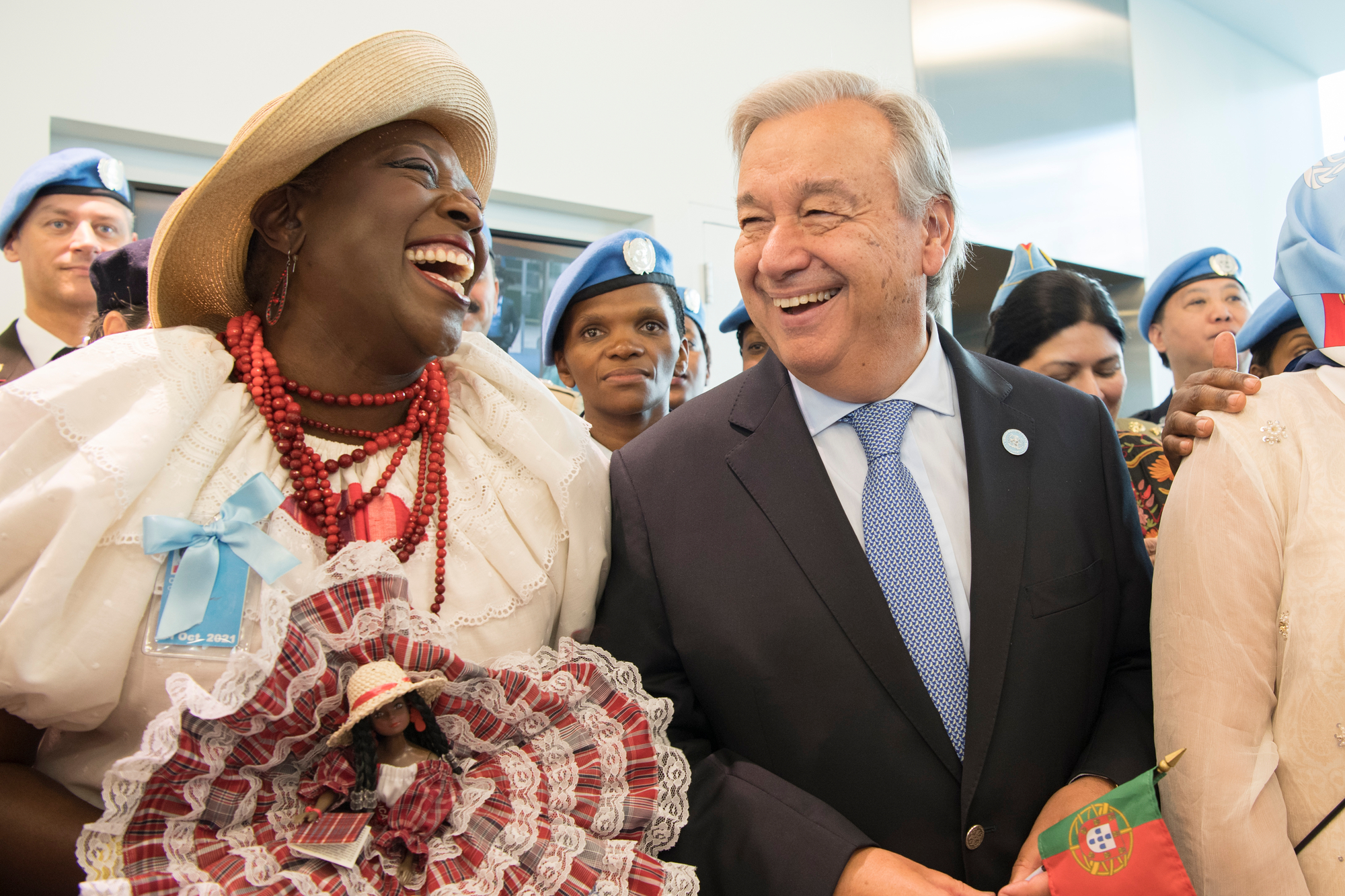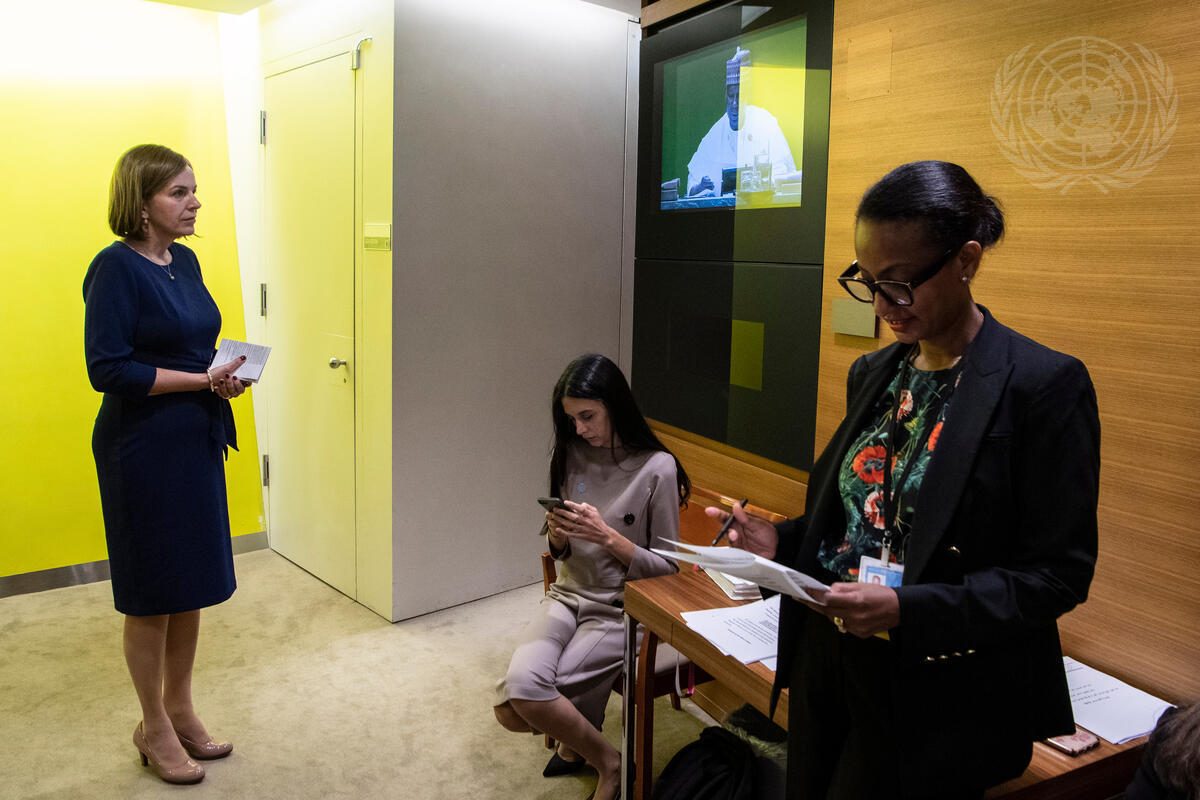Career Options
Staff categories
The United Nations workforce is made up of different categories of staff. Within each category there are different levels, which reflect increasing levels of responsibilities and requirements. The information in this section will help you decide for which staff category you see a good fit. This will be useful when you start searching and applying for jobs.
These are the different categories of staff at the United Nations:
- Professional and higher categories (P and D)
- General Service and related categories (G, TC, S, PIA, LT)
- National Professional Officers (NO)
- Field Service (FS)
- Senior Appointments (SG, DSG, USG and ASG)
At the United Nations you progress in your career through merit and qualifications. There are, however, restrictions on movement between the different categories. For each category of job there is an assessment process. Moving from one category to another is tied to specific requirements.
Within the professional and higher category, some jobs are filled through global competitive examination processes, including the Young Professionals Programme Examination and the Competitive Examination for Language Professionals.
More information about these examinations and other tests and assessments
Information about Pay and Benefits
Please keep reading for more information about each category.
Professional and Higher Categories
Staff members in the Professional and higher categories (P and D) are normally internationally recruited and are expected to serve at different duty stations throughout their career with the Organization. Openings for professional jobs can be found at all duty stations across the global United Nations Secretariat.
What education do I need?
Normally, it is required that you have an advanced university degree for the professional and director level positions. It is, however, frequently accepted that if you have a first-level university degree, combined with qualifying work experience, you meet the educational requirements.
Positions in certain job families, including military, civilian police, medical, conference services may have different standards for the minimum educational requirements, which are accordingly reflected in their respective job openings. Positions from job families that require specialized studies, e.g., Medical Doctors, require an advanced university degree, which cannot be substituted by a combination of a first-level university degree and experience. Positions in some other areas, mainly language positions, might require only a first level university degree for the minimum educational requirements.
What work experience do I need?
Your work experience should be relevant to the job for which you are applying; each job may also have specific requirements, which are specified in the opening. For mid-career and senior level positions, progressively responsible work experience is required. As you acquire more relevant work experience you can progressively apply for higher positions.
What if I recently graduated from university and have no relevant work experience?
If you recently graduated from university and you have limited or no work experience, you may qualify to take the Young Professionals Programme(YPP) recruitment examination.
What are the language requirements?
There are six official languages at the United Nations: Arabic, Chinese, English, French, Russian and Spanish. Two of these, English, and French, are the working languages. To work for the United Nations, you need to have excellent command of either English or French. Knowledge of an additional language is an asset but is not required for most jobs. If there are additional language requirements, as may be the case for some language positions, they are specified in the respective job openings.
What kind of jobs are there in the Professional and higher categories?
There is a wide range of jobs in the nine job networks: Economic, Social and Development; Information and Telecommunication Technology; Internal Security and Safety; Legal; Logistics, Transportation and Supply Chain; Management and Administration; Political, Peace and Humanitarian; Public Information and Conference Management; and Science.
What is the nature of the work in the Professional and higher categories?
Work in the Professional category generally demands a high degree of analytical and communication skills, substantive expertise and/or managerial leadership ability. Typically, these positions require judgment in analyzing and evaluating problems as well as in decision-making involving discretionary choices between alternative courses of action. They also require the understanding of an organized body of theoretical knowledge at a level equivalent to that represented by a university degree. While this knowledge is customarily and characteristically acquired through formal education, it may, in some fields of learning or specialized disciplines, be acquired through other training, self-study, or practical experience.
What do the jobs at the senior professional level entail?
Directors (D-1 and D-2 levels) represent the highest level on the career staffing structure of the Organization. As a Director you manage a programme of the Organization. You are also expected to provide leadership in formulating and implementing the substantive work programme of an office, determine priorities, and allocate resources for the completion of outputs and their timely delivery. Senior professionals hired for positions at the P-6 and P-7 level typically work as senior advisers or experts, bringing several years of analytical and research experience to the United Nations.
| Entry level professionals | Mid-level professionals | Senior level professionals | |||
| P-2 | minimum 2 years of work experience No experience is required if applying to the Young Professionals Programme | P-4 | minimum 7 years of work experience | P-6/D-1 | minimum 15 years of work experience |
| P-3 | minimum 5 years of work experience | P-5 | minimum 10 years of work experience | P-7/D-2 | more than 15 years of work experience |

